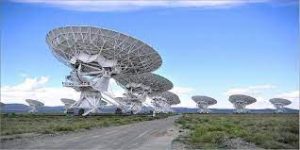SARAS 3 Radio Telescope:

Indian researchers have conclusively refuted a recent claim of the discovery of a radio wave signal from cosmic dawn, the time in the infancy of our Universe when the first stars and galaxies came into existence.
- In 2018 a team of researchers from Arizona State University (ASU) and MIT in the US detected a signal from stars emerging in the early universe using data from the EDGES radio telescope.
- The study published in the journal Nature created much excitement in the astronomy community around the world.
- ASU/MIT team had claimed the discovery of a radio wave signalling the birth of the First Stars, which was also hailed by Harvard astrophysicist Avi Loeb as worthy of two Nobel prizes.
- However, the world awaited confirmation from independent researchers.
- Utilising the indigenously invented and built SARAS 3 radio telescope, researchers from Raman Research Institute refuted this claim.
- The SARAS 3 radio telescope is invented and built by the astronomers at RRI.
- The RRI findings are now published in Nature Astronomy.
- Raman Research Institute (RRI) is an institute of scientific research located in Bangalore, India.
- It was founded by Nobel laureate C. V. Raman.
- It is an autonomous institute of the Department of Science & Technology, Govt. of India.




